BMW X3 (F25) Owners Manual: Adjusting
- Vehicle features and options
- Seats
- Safety belts
- Front headrests
- Rear head restraints
- Seat and mirror memory
- Mirrors
- Steering wheel
Vehicle features and options
This chapter describes all standard, country-specific and optional features offered with the series. It also describes features that are not necessarily available in your car, e. g., due to the selected options or country versions. This also applies to safety-related functions and systems. The respectively applicable country provisions must be observed when using the respective features and systems.
Sitting safely
The ideal seating position can make a vital contribution to relaxed, fatigue-free driving.
The seating position plays an important role in an accident in combination with:
- Safety belts
- Head restraints
- Airbags
Seats
Hints
Do not adjust the seat while driving
Do not adjust the driver's seat while driving, or the seat could respond with unexpected movement and the ensuing loss of vehicle control could lead to an accident.
Do not incline the backrest too far to the rear
Do not incline the backrest too far to the rear while driving, or there is a risk of slipping under the safety belt in the event of an accident. This would eliminate the protection normally provided by the belt.
Keep the movement area unobstructed
When changing the seat position, keep the seat's area of movement unobstructed; otherwise, people might get injured or objects damaged.
Manually adjustable seats
At a glance
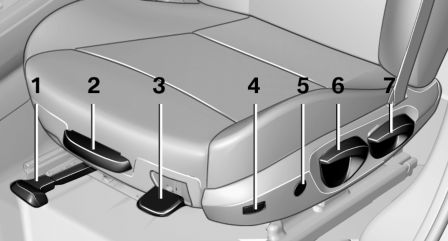
- Forward/backward
- Thigh support
- Seat tilt
- Backrest width
- Lumbar support
- Height
- Backrest tilt
Forward/backward
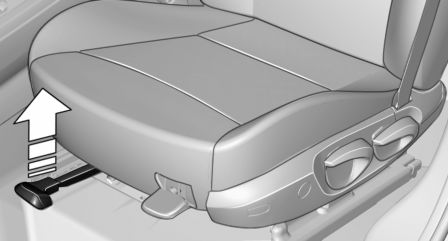
Pull the lever and slide the seat in the desired direction.
After releasing the lever, move the seat forward or back slightly making sure it engages properly.
Height
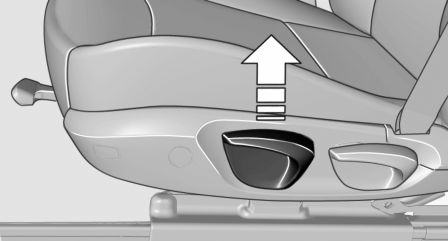
Pull the lever and apply your weight to the seat or lift it off, as necessary.
Backrest tilt
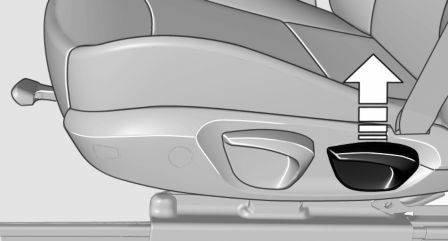
Pull the lever and apply your weight to the backrest or lift it off, as necessary.
Seat tilt
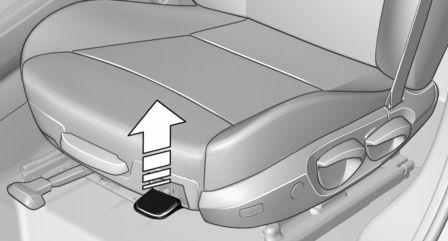
Pull the lever and move the seat to the desired tilt. After releasing the lever, apply your weight to the seat or lift it off to make sure the seat engages properly.
Electrically adjustable seats
At a glance
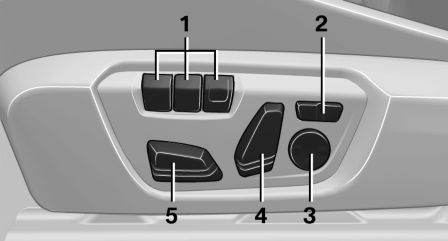
- Seat and mirror memory
- Backrest width
- Lumbar support
- Backrest tilt
- Forward/backward, height, seat tilt
General information The seat setting for the driver's seat is stored for the profile currently in use. When the vehicle is unlocked via the remote control, the position is automatically retrieved if the Function, is activated for this purpose.
Adjustments in detail
1. Forward/back.
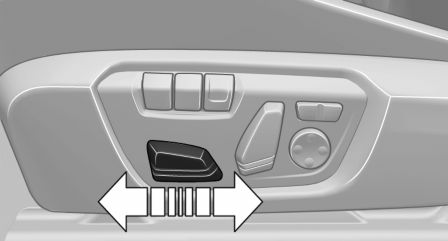
2. Height.
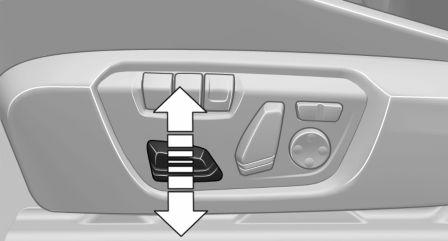
3. Seat tilt.
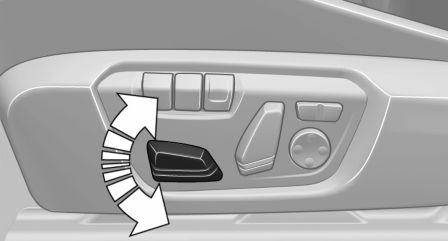
4. Backrest tilt.
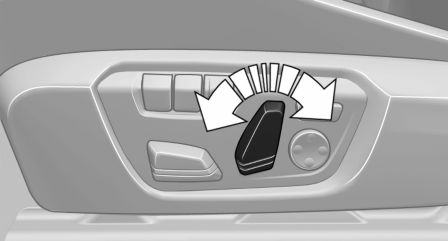
Thigh support
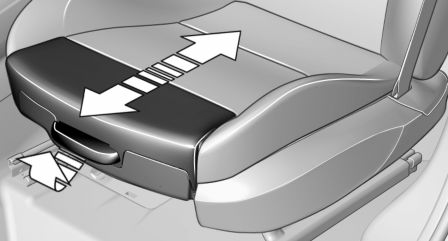
Pull the lever at the front of the seat and adjust the thigh support.
Lumbar support
The curvature of the seat backrest can be adjusted in a way that it supports the lumbar region of the spine. The lower back and the spine are supported for upright posture
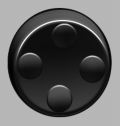
- Press the front/rear section
of the switch.
The curvature is increased/ decreased.
- Press the upper/lower section
of the switch.
The curvature is shifted up/ down.
Backrest width
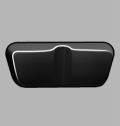 Change the
width of the backrest
using the side wings to adjust
the lateral support.
Change the
width of the backrest
using the side wings to adjust
the lateral support.
Front seat heating
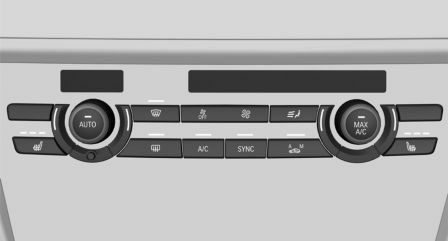
Switching on
 Press button once for each
temperature
level.
Press button once for each
temperature
level.
The maximum temperature is reached when three LEDs are lit.
If the journey is continued within approx. 15 minutes, the seat heating is activated automatically with the temperature selected last.
When ECO PRO, is activated, the heater output is reduced.
Switch off
 Press button longer.
Press button longer.
The LEDs go out.
Rear seat heating
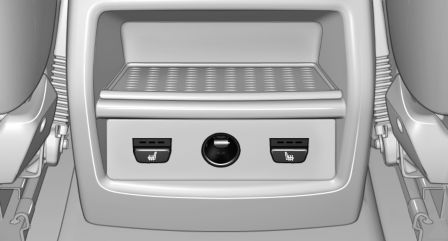
Switching on
 Press button once for each
temperature
level.
Press button once for each
temperature
level.
The maximum temperature is reached when three LEDs are lit.
If the journey is continued within approx. 15 minutes, the seat heating is activated automatically with the temperature selected last.
When ECO PRO, is activated, the heater output is reduced.
Switch off
 Press button longer.
Press button longer.
The LEDs go out.
Safety belts
Seats with safety belt
The vehicle has five seats, each of which is equipped with a safety belt.
General information
Always make sure that safety belts are being worn by all occupants before driving off.
For the occupants' safety the belt locking mechanism triggers early. Slowly guide the belt out of the holder when applying it.
Although airbags enhance safety by providing added protection, they are not a substitute for safety belts.
The upper shoulder strap's anchorage point will be correct for adult seat occupants of every build if the seat is correctly adjusted.
- The two outer safety belt buckles, integrated into the rear seat, are for passengers sitting on the left and right.
- The center rear safety belt buckle is solely intended for the center passenger.
Hints
One person per safety belt
Never allow more than one person to wear a single safety belt. Never allow infants or small children to ride on a passenger's lap.
Putting on the belt
Lay the belt, without twisting, snugly across the lap and shoulders, as close to the body as possible. Make sure that the belt lies low around the hips in the lap area and does not press on the abdomen. Otherwise, the belt can slip over the hips in a frontal impact and injure the abdomen.
The safety belt must not lie across the neck, rub on sharp edges, be routed over breakable objects, or be pinched.
What reduces the restraining effect
Avoid wearing bulky clothing, and pull the shoulder belt periodically to readjust the tension. Make sure that the belt is not jammed; otherwise, the belt can be damaged and the restraining effect is reduced.
Using the middle safety belt
If the middle safety belt in the rear is used, the larger side of the backrest must be locked. Otherwise, the safety belt will not have a restraining effect.
Buckling the belt
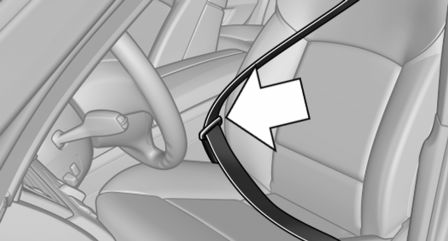
Make sure you hear the latch plate engage in the belt buckle.
To ease accessibility to the seat belt buckle, an adjustable slider is available on the belt to help position the buckle when not in use.
Unbuckling the belt
1. Hold the belt firmly.
2. Press the red button in the belt buckle.
3. Guide the belt back into its roll-up mechanism.
Safety belt reminder for driver's and passenger's seat
 The indicator lamp lights
up and a signal
sounds. Make sure that the safety
belts are positioned correctly. The
safety belt reminder is active at speeds above
approx. 6 mph/10 km/h. It can also be activated
if objects are placed on the front passenger
seat.
The indicator lamp lights
up and a signal
sounds. Make sure that the safety
belts are positioned correctly. The
safety belt reminder is active at speeds above
approx. 6 mph/10 km/h. It can also be activated
if objects are placed on the front passenger
seat.
Damage to safety belts
Wear and tear after accidents or when damaged otherwise: Have the safety belts, including the safety belt tensioners, replaced and have the belt anchors checked.
Check and replace safety belts
This should only be done by your service center; otherwise, this safety feature might not work properly.
Front headrests
Correctly adjusted head restraint
A correctly adjusted head restraint reduces the risk of injury to cervical vertebrae in the event of an accident.
Adjusting the head restraint
Adjust the head restraints of all occupied seats properly; otherwise, there is an increased risk of injury in an accident.
Height Adjust the head restraint so that its center is approximately at ear level.
Distance Adjust the distance so that the head restraint is as close as possible to the back of the head.
If necessary, adjust the distance by adjusting the tilt of the backrest.
Active head restraint
In the event of a rear-end collision with a certain severity, the active head restraint automatically reduces the distance from the head.
Reduced protective function
- Do not use seat or head restraint covers.
- Do not hang objects, e.g., clothes hangers, on the head restraints.
- Only attach accessories approved by BMW to the seat or head restraint.
Otherwise, the protective function of the active head restraint will be impaired and the personal safety of the occupants will be endangered.
Adjusting the height
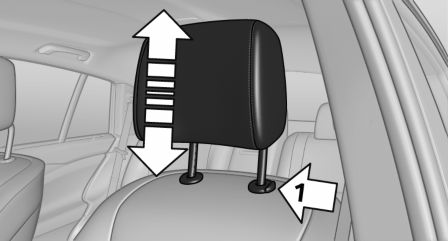
- To raise: push.
- To lower: press button, arrow 1, and push headrest down.
Removing
The head restraints cannot be removed.
Rear head restraints
Correctly adjusted head restraint
A correctly adjusted head restraint reduces the risk of injury to cervical vertebrae in the event of an accident.
Adjusting the head restraint
Adjust the head restraints of all occupied seats properly; otherwise, there is an increased risk of injury in an accident.
Height Adjust the head restraint so that its center is approximately at ear level.
Adjusting the height
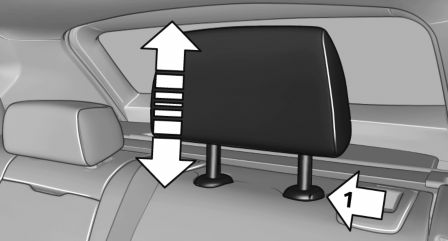
- To raise: push.
- To lower: press button, arrow 1, and push headrest down.
The center head restraint cannot be adjusted in elevation.
Removing
Only remove the head restraint if no one will be sitting in the seat in question.
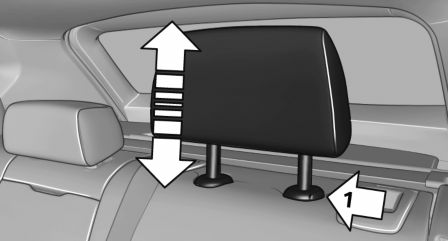
1. Raise the head restraint up against the resistance.
2. Press button, arrow 1, and pull the head restraint out completely.
The center head restraint cannot be removed.
Before transporting passengers
Reinstall the head restraint before transporting anyone in the seat; otherwise, the protective function of the head restraint is unavailable.
Seat and mirror memory
Hints
Do not retrieve the memory while driving
Do not retrieve the memory setting while driving, as an unexpected movement of the seat could result in an accident.
Keep the movement area unobstructed
When changing the seat position, keep the seat's area of movement unobstructed; otherwise, people might get injured or objects damaged.
The concept
Two driver's seat and exterior mirror positions can be stored per profile, and called up. Settings for the backrest width and lumbar support are not stored in memory.
At a glance
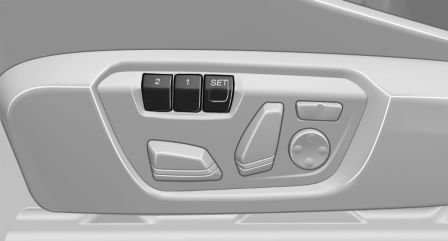
Storing
1. Switch on the ignition.
2. Set the desired position.
3.  Press button. The LED in the
button
lights up.
Press button. The LED in the
button
lights up.
4. Press selected button 1 or 2 while the LED is lit. The LED goes out.
If the SET button is pressed accidentally:
 Press button again.
Press button again.
The LED goes out.
Calling up settings
Comfort function
1. Open the driver's door.
2. Switch off the ignition.
3. Briefly press the desired button 1 or 2.
The corresponding seat position is performed automatically.
The procedure stops when a reel for adjusting the seat or one of the buttons is pressed.
Safety mode
1. Close the driver's door or reel on the ignition.
2. Press and hold the desired button 1 or 2 until the adjustment procedure is completed.
Calling up of a seat position deactivated
After a brief period, calling up stored seat positions is deactivated to save battery power.
To reactivate calling up of a seat position:
- Open or close the door or tailgate.
- Press a button on the remote control.
- Press the Start/Stop button.
Mirrors
Exterior mirrors
General information The mirror on the passenger side is more curved than the driver's side mirror.
Depending on the vehicle equipment, the mirror setting is stored for the profile currently in use. When the vehicle is unlocked via the remote control, the position is automatically retrieved if this function is active.
Note
Estimating distances correctly
Objects reflected in the mirror are closer than they appear. Do not estimate the distance to the traffic behind you based on what you see in the mirror, as this will increase your risk of an accident.
At a glance
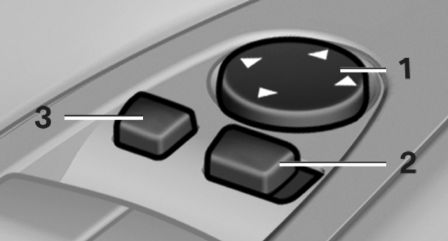
- Adjusting
- Left/right, Automatic Curb Monitor
- Fold in and out
Selecting a mirror
 To change over to the other
mirror:
Slide the switch.
To change over to the other
mirror:
Slide the switch.
Adjusting electrically
 The setting corresponds to the
direction
in which the button is pressed.
The setting corresponds to the
direction
in which the button is pressed.
Saving positions
Seat and mirror memory.
Adjusting manually
In case of electrical malfunction press edges of mirror.
Automatic Curb Monitor
The concept If reverse gear is engaged, the mirror glass on the front passenger side is tilted downward.
This improves your view of the curb and other low-lying obstacles when parking, e.g.
Activating
1.  Slide the switch to the
driver's side
mirror position.
Slide the switch to the
driver's side
mirror position.
2. Engage selector lever position R.
Deactivating Slide the switch to the passenger side mirror position.
Fold in and out
 Press button.
Press button.
Possible at speeds up to approx.
15 mph/20 km/h.
E. g. this is advantageous
- In car washes.
- In narrow streets.
- For folding mirrors back out that were folded away manually.
Mirrors that were folded in are folded out automatically at a speed of approx.
25 mph/40 km/h.
Fold in the mirror in a car wash
Before washing the car in an automatic car wash, fold in the exterior mirrors by hand or with the button; otherwise, the mirrors could be damaged, depending on the width of the vehicle.
Automatic heating Both exterior mirrors are automatically heated whenever the engine is running.
Automatic dimming feature Both exterior mirrors are automatically dimmed.
Photocells are used to control the Interior rearview mirror.
Interior rearview mirror, manually dimmable
Turn knob
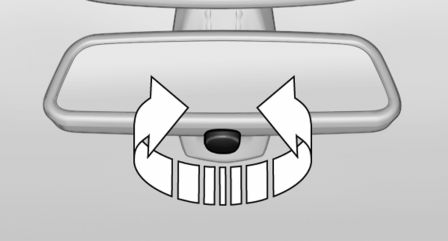
Turn the knob to reduce the blinding effect by the interior mirror.
Interior rearview mirror, automatic dimming feature
The concept
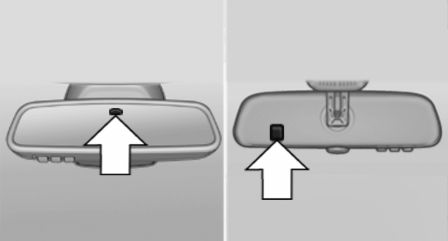
Photocells are used for control:
- In the mirror glass.
- On the back of the mirror.
Functional requirement
For proper operation:
- Keep the photocells clean.
- Do not cover the area between the inside rearview mirror and the windshield.
Steering wheel
Note
Do not adjust while driving
Do not adjust the steering wheel while driving; otherwise, an unexpected movement could result in an accident.
Adjusting
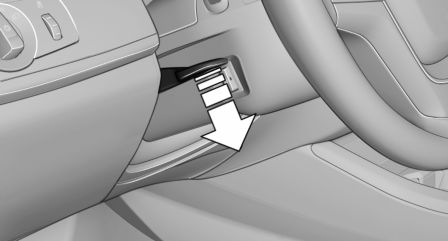
1. Fold the lever down.
2. Move the steering wheel to the preferred height and angle to suit your seating position.
3. Fold the lever back.
Steering wheel heating
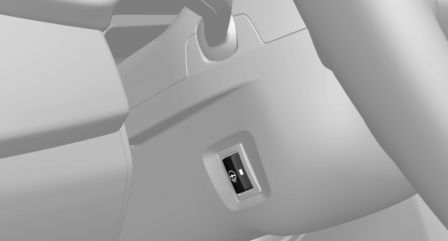
 Press button.
Press button.
- On: the LED lights up.
- Off: the LED goes out.
 Opening and closing
Opening and closing
Vehicle features and options
This chapter describes all standard, country-specific
and optional features offered with the
series. It also describes ...
 Transporting children safely
Transporting children safely
Vehicle features and options
This chapter describes all standard, country-specific
and optional features offered with the
series. It also describes ...
Other materials:
BMW X3 (F25) Service & Repair Manual > Driveline+Axles: General information on final drive oil
1.0 GENERAL INFORMATION ON FINAL DRIVE OIL
Final Drive oil or hypoid gear lubricant must conform with the following requirements because of the high
loads which occur on the profiles of the hypoid gear teeth:
Load carrying capacity.
Sufficient protection against seizure.
Good wear protec ...
